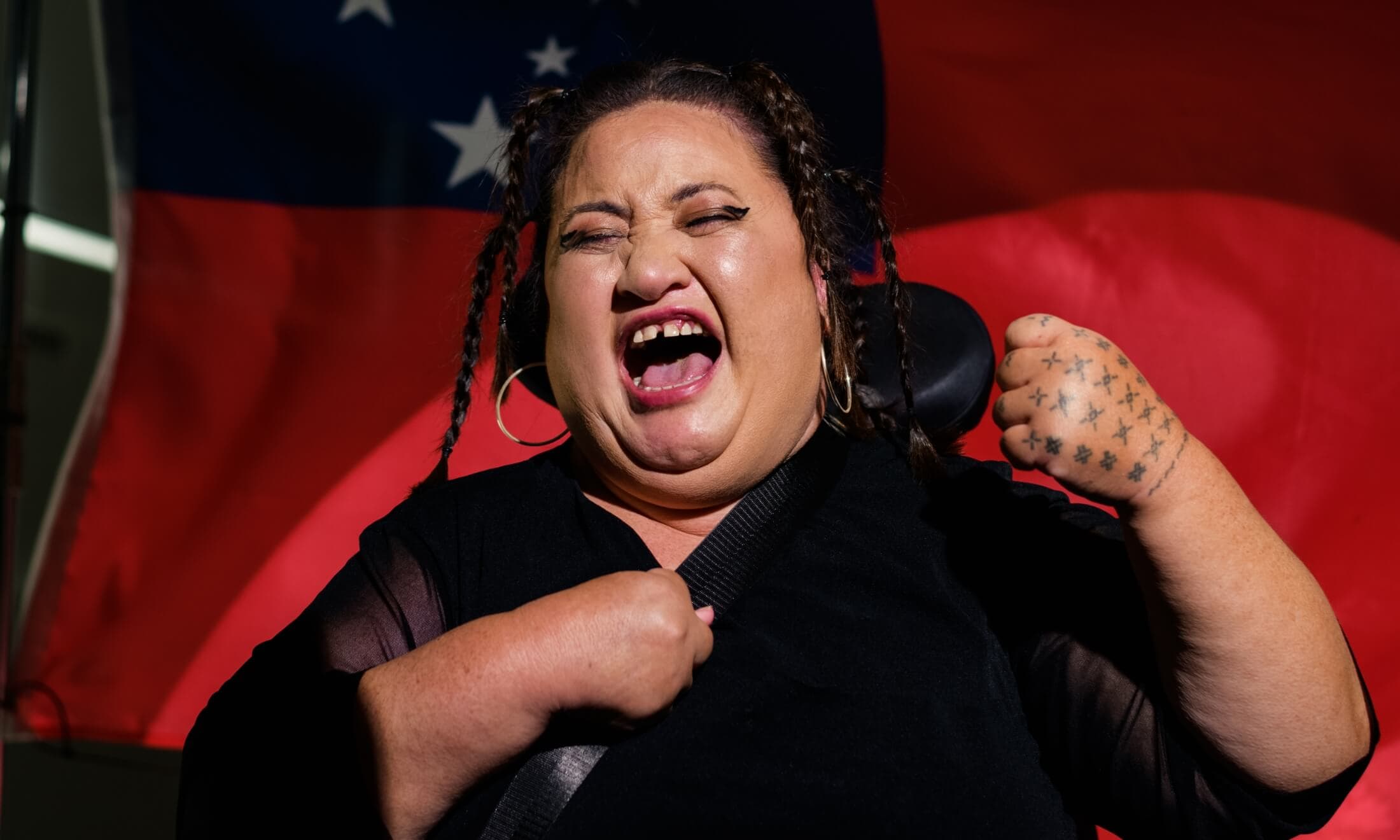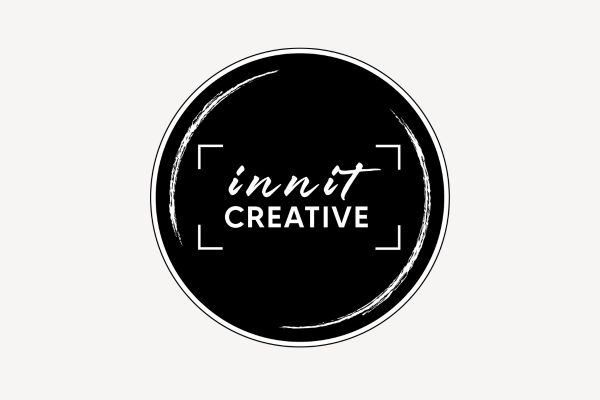
AIGA
Touch Compass
An exploration of identity, desire, family, and of being disabled and Pasifika, AIGA (Sāmoan for family/whānau) is ground-breaking theatre told through the lens of Pacific Toa award-winner Lusi Faiva.
AIGA represents the big dreams and heart-felt reflections of award-winning disabled performing artist, Lusi Faiva – performed by an ensemble of women, non-binary, disabled, non-disabled, Pasifika and Māori creatives.
Exploring identity, family, and desire, AIGA is a show that ebbs, flows, dips forward into the wicked and tilts back toward the heavenly as we traverse through the experience of Lusi’s beautiful and complex life story. Using music, movement and dramedy, AIGA chronologically captures Lusi’s life from youth into adulthood, from 1960’s Samoa to the warrior that we bear witness to today.
AIGA is a three-year “crip time and c r i p s p a c e” devised work that has not only drawn on the life history of Lusi, but also the experiences of co-collaborators and performers including Iana Grace Pauga, Forest V Kapo (Te Atiawa, Ngāti Raukawa), Alex Medland (Kai Tahu), Jake Arona and support writer and performer Fiona Collins. The collective creative ensemble of women, non-binary, disabled, non-disabled, Pasifika and Māori gives this work its proud identity.
We’re incredibly proud to share this Aotearoa story with universal resonance with you, Whakatū. An honest and heartfelt work that moves, expands empathy and consciousness and invites us to explore new perspectives of being.
With a powerhouse creative team, this work features storytelling at its core; a story that will make you laugh, cry, think and feel – one that needs to be heard.
Features Sāmoan, Te Reo Māori, English and NZSL languages.
Ticketing information
Two sections have been reserved in the Theatre Royal as priority seating for the Disabled and D/deaf communities, and older people. One of these sections is at the front of the stalls (downstairs area on the flat) and one is on the stage to the side and back of the performance area. These sections are reserved to allow audience members that are part of these communities access to connect and celebrate with Lusi Faiva (the lead artist).
Front of the stalls priority seating (downstairs seating on the flat)
The front rows closest to the stage will be reserved with a mixture of theatre seats and spaces for wheelchair and mobility device users. There will also be reserved seats for the D/deaf community near the NZ Sign Language interpreter.
Stage priority seating (accessible via wheelchair lift or stairs) | Sales for these seats have now closed.
This will be a combination of chairs, beanbags and space for wheelchair and mobility device users. Access is via wheelchair lift from foyer. These seats will be to the side and back of the performance area, and the lighting state of the show means that the audience seated in the stalls will only see a shadowy silhouette of anyone seated on stage, except when the houselights are up.
Tickets to these sections can be purchased by phoning the Theatre Royal box office on 03 548 3840 (Select 1) between 12pm-4pm weekdays or by emailing [email protected]
Ticket Cost
All priority tickets are $24 plus a $2.50 booking fee.
Companion seats are free of charge and can be reserved in the same area.
Lusi Faiva
2021 Arts Access Artistic Achievement Award, Te Putanga Toi Arts Access Awards
2020 Spirit of Attitude award, The Attitude Awards, Creating Achievements of the Disability Community
2020 Pacific Toa Artist Award, Creative New Zealand
2019 Highly Commended Artistic Achievement Award, Te Putanga Toi Arts Access Awards
Artistic Credits:
Creative Lead / Performer: Lusi Faiva
Performer: Iana Grace
Performer, Writing Support, Dramaturg: Fiona Collins
Performer, Co-Sound Composer: Forest V Kapo
Director: Moana Ete
Spatial & AV Designer: Rowan Pierce
Producer: Jordan Walker
Lighting Designer: Isadora Lao
Sound Designer: Andrew McMillan
Costume Designer: Lindah Lepou
Technician & Operator: Michael Wood
Collaborator & Translator: Jake Arona
Stage Manager: Lucie Camp
Former Producer, Production Manager: Izzy Robinson
AV & Spatial Design Intern: Rīhare Te Are
Producers in Training Intern: Amita Kala
Artist + Audience Care:
Some helpful notes for those unfamiliar with the terms referred to here.
What is Crip time?
A concept arising from disabled experience that addresses the ways that disabled/chronically ill and neurodivergent people experience time (and space) differently than non-disabled minded folk. Crip time indicates the complexity of disabled experience in a world with many barriers to accessibility. In this sense, the term denotes the extra time—and need for time accommodations—a person might need to perform any variety of tasks.
C r i p s p a c e is a space where disabled folks can express themselves without the ableist pressures most often present in our society.
Why is this important to point out?
Understanding crip time is important because it allows us to acknowledge how normative standards of time (and space/ accommodation) can be inaccessible for many disabled people. It also notifies a conflict with normative time, the seemingly normal apportioning or segmenting of time in daily life, as well as the normative way people are expected to navigate and access spaces.
THEATRE ROYAL
Tues 29 Oct | 6.30pm | 65 min
Pay What You Can (PWYC)
14+
Content Warnings: Strong language, Sexual references, Sexual assault themes, Flashing images & lights, Loud music.
PLEASE NOTE: Two sections have been reserved in the Theatre Royal as priority seating for the Disabled and D/deaf communities, and older people for this event. Please see below for more information or phone Theatre Royal box office on 03 548 3840 (Select 1).
This event includes a lockout period at the start of the performance: any late-comers who arrive during this lock-out period will be admitted only at a suitable break in the performance.
Rows S, T & U, in the Dress Circle may have restricted viewing of the projected content of this event.

